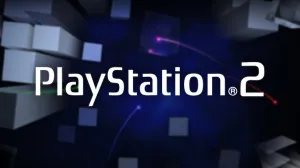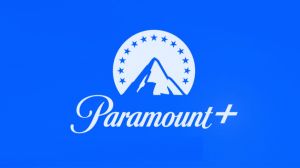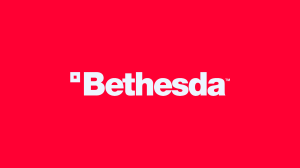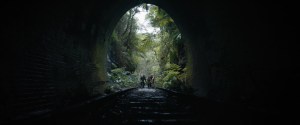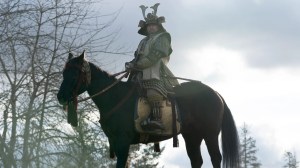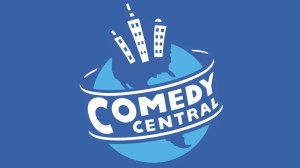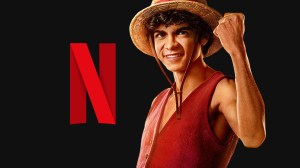Come Monday, National Geographic will be taking us all on another vast trip across the cosmos. The long-gestating season of Cosmos: Possible Worlds will finally arrive and take us a trip aboard the Ship of the Imagination as various potential futures unfold in front of our very eyes. Ahead of the season premiere, we had the chance to catch up series co-creator Ann Druyan and host Neil deGrasse Tyson about the batch of episodes that start airing on Monday.
Videos by ComicBook.com
As you’ll see below, both of the scientifically-fueled creators discuss what made them want to return for another season of the Druyan and Seth McFarlane-product series, in addition to discussing the development of the documentary itself and where the show can go from here.
Keep scrolling to see what Druyan and host deGrasse Tyson have to say about the upcoming season of the NatGeo hit.
Cover photo by Amy Sussman/Getty Images
On Returning for Another Season for Cosmos
ComicBook.com: Cosmos originally debuts decades ago and then it comes back in 2014, I believe it was, with A Spacetime Odyssey. Now, six years later there’s another new season. What’s the driving force behind your decision to keep coming back, at least one more time with Cosmos: Possible Worlds?
Ann Druyan: I think we all feel the long shadow over our future. We know it’s real. We know we have a tremendous challenge that we have to rise to, and meet if our civilization is going to endure. I was struck when I was first conceiving the series, this new season, by how dystopian it is. I know it’s just reflection. Art is a reflection of reality, so I’m not blaming anybody, but it only depicts a future that’s horrifying ruins. We’re living in shipping containers. It’s really bad. But, to me dreams are maps and without a great dream of the future…and I’m not talking about pie in the sky, I’m not talking about something that’s unattainable. I’m talking about the future that we can still have if we start to use our science and high technology with wisdom and foresight, and we start to live not on the timescales of the next ballot or the next election, but on the timescales of the scientist. Taking the longest possible view.
And so I was so lucky because I got to work with 986 other people, including Brannon Braga, who imagined the possible worlds of the exoplanets that we’re just beginning to discover, but also the possible worlds of the past. Possible worlds of what’s this world, this gorgeous planet, the most beautiful planet we’ve ever seen. We’ve now been able to do a little comparative planetology. We’ve seen dozens of other planets and moons up close and this one is the place, without a doubt, the most beautiful. You, me, and everyone you’ve ever known who is alive today is descended from people who had their backs to the wall and yet against the most horrifying challenges and suffering managed to endure.
There are people among us, like some of the heroes in both the book and the show, who are people who stood up against the most implacable murderer and stood up the science. Stood up that what they believed was real, knowing that it would get them killed. I mean, those are qualities that are needed now, we have them, and we can do those things. I think the most wonderful thing about the people whose stories we tell in this season is that none of them, to my knowledge, ever physically hurt anyone else. They didn’t. Not that scientists haven’t done terrible things, I certainly am aware of that, but these are people who didn’t want to kill anybody about anything. They just wanted to acquire some additional tiny technique, puzzle piece, in the great, great picture of nature and the cosmos. And so I feel like, you know, a few heroes, who are not as famous just because of what they wear or their wealth or variety and other qualities, but instead, heroes because they embodied the manifest those qualities that we need most right now.
You know, so many people have been attracted to science. To do it, to read it, to study it, teach it, because of a brush with Cosmos. What I wanted to tell some of that great stories of the romance of life in the universe as well as the story of these hero searchers that I think we all need to encourage us, but also I think the very young too, need this. Because why bother to do all that hard work to become a scientist or an engineer if there is no future?
That’s the dream of this season of Cosmos. It’s very similar to something that Einstein once said, which was “You know if science was ever to fulfill its mission as fully as art has, its inner meaning must penetrate the consciousness of all the people.” And so that’s the dream of Cosmos. Convey the inner meaning, the soaring spiritual uplift is, I like to call it. Exploring anything, even a little bit about nature.
Neil deGrasse Tyson: Yeah, that’s a great question. Great question. It wasn’t obvious that I would come around a second time because I thought, “Wouldn’t it be cool if each Cosmos had like a… ” It’d be like Doctor Who, where there’s another incarnation of the host, someone younger and there’s a passing of a torch.
But I think there are other countervailing forces such as, “Well, I’m already familiar with this entire team, with Ann Druyan and Brannon Braga and executive producers.” And there’s a certain efficiency to bringing the band back together to continue that journey, and so that’s what we did. And I was still able and I was more visible than ever before, so that couldn’t hurt to the popularity of the series. And so, when they asked for me to return, I had no hesitation, and I agreed.
On Balancing Science and Theatrics
With something like Cosmos, Ann’s kind of more on the Hollywood side and Neil’s an astrophysicist. At what point does someone like Neil get involved in the development process?
NdT: I carry three titles. So, one is narrator; I’m also obviously host; and I’m also executive science editor. All the storytelling happens between Ann and Brannon. Each of them has this experience writing in ways that become visualized on a screen. So, that’s what would distinguish a writer for that industry from someone who simply writes novels. If there was the same talent, then every novel writer could be the screenplay person and generally they’re not. It’s almost the exception when they have anything to do with it at all. So, it’s a very different talent set.
Ann, who is not herself a scientist but is hyper scientifically literate and she’s also emotionally literate on a level where if she’s going to talk about science and she accesses your emotions of curiosity and of interest, then she becomes the ideal storyteller for modern times in bringing the universe down to earth. She’s the person who, 30,000 years ago around the campfire, would be the person standing there, and everyone would be listening to them because they would have wisdom of the ancestors and they’d have knowledge and wisdom of life and survival in the times, and they would be the ones passing the story forward.
So, I’m just glad that we had access to first-run production people. The guy [Alan Silvestri] who did our music does the music for the Avengers series, for goodness’ sake. The person [Ruth E. Carter] who designed what I wore also designed all the costumes for the Black Panther, and got an Academy Award for doing so. Of course, I was really an easy task for her compared to having a whole movie. The visual effects supervisor, he’s like the head of the society of visual effects people. Whatever the name of that group is, he’s head of it and he does it for first-run movies. He worked on Stargate, for example.
And we have him for a TV documentary. Oh my gosh. These are modern storytelling geniuses who can now bring that talent to bear on telling the story of science, and why science matters to you. And when you realize how much it matters, you might be compelled to harness the power that science and technology gives us to become a better shepherd of the civilization that we have shaped.
On Distrust in the Digital Age
With everyone having an entire source of all information in their pocket that they can control with their thumbs, it’s almost given us a kind of skepticism or maybe even distrust surrounding information sometimes. Is that something you think kind of posed a roadblock in trying to craft something such as Possible Worlds?
NdT: That’s a brilliant question, and you are right, but let me shape it slightly differently. It’s “What do you do in a world where people have access to all information, whether it’s correct information or not? What do you do?” And do you just hand them other information and say, “Well my information is correct and theirs is wrong?” Well, no, that’s not going to work. So, what we think works is you empower people with the methods and tools of how to think about information. And when they do that, they will have the ability to ask questions, to be able to pass judgment on the likelihood that something that they just heard is true or false.
So, Cosmos is, I’d like to think of it as a pathway of empowerment for your mind. And when you learn how the universe works, and how and why we have come to learn how the universe works, you can then walk forward and say, “What you just told me does not square with how I know the universe works. So, I’m going to be skeptical of that. I’ll keep listening, but then I’m going to look a little closer at it.” And so Cosmos, at its best, would take any viewer and empower them to see the world differently.
And ultimately, because this is not simply an intellectual exercise, it’s also an emotional one, they would turn around and say, “Now, not only do I know what’s going on in the universe, I know why it matters to me, and now I’m compelled to do something about it.” And that’s what distinguishes Cosmos from, I think, any other documentary. In fact, you can’t even use the word “documentary” to describe Cosmos. I don’t know what word to use, but you don’t feel like you’re watching a documentary when it’s on. There’s a different relationship between you and that content that may be unique in the pantheon of television programming.
AD: You know, I feel like for as long as we’ve been human, we’ve been faced, with things that were real and things that were not real, with our fears, our terror, and some of the terrors were based, solidly and the challenges of the environment. But that hasn’t changed. What has changed, is first time and the history of our civilization and I’m, I’m saying yes, the first time in the history of our civilization, I know that’s true, that not only do we have access to all this information, but we have the methodology of science as a kind of bullshit detector to tell us what’s real and what’s not.
So you know, this empowers the Ship of the Imagination are these twin engines of skepticism and wonder, each equally powerful, one never at the expense of the other. That’s what we need. We need a healthy dose of skepticism. Which means if you read something online and it sounds kind of amazing. Yeah, and you want to know if it’s true, then you have to keep searching and you have to find independent lines of evidence. Not just the same thing, retweeted or re-texted or re-emailed, but you have to find independent sources of information to begin to know if it’s real.
And of course, you know there’s tremendous amount of disinformation, but we do have the means and you know that’s another dream of Cosmos, to internalize that means. That’s why every season we begin with the rules of the road. With this five or six very simple rules of the methodology of science. That’s what makes science so powerful.
You know, really think of it. We have been able to resolve images from, well it’s a very short time after the birth of time. After the birth of the universe. We can put our senses on distant worlds and have done this so much that it’s not even a headline anymore. We can do amazing things. We can reconstruct the distant past over billions of years. We have these great powers and at the same time, we are in the process of ruining our environment. The thing we need most to exist.
So why is that? Why are we so disconnected from revelations of science? So disconnected that we live with a separate set of ideas in our heart and our brain. Science has been compartmentalized and reduced to an hour of boredom or terror a couple of times a week and that’s a sin, because this is not a birthright. It belongs to every one of us and as a non-scientist and person who really felt completely excluded from science as a very young person. I just feel so strongly as Carl [Sagan] did in a different, coming from a completely different direction. That the best thing we could do was to tell those stories so that anyone could know it.
Where Cosmos Goes From Here
It only takes a quick look at the night sky to realize just how small we are and just how endless everything is. What’s that mean for you and your team on this series? I mean, you certainly haven’t explored all the possibilities of space, so do you have an idea of how long you would like to stick with this?
AD: Well, I already have a vision of season four, and I’ve been collecting stories for season four for some time. And you know, the great thing about Cosmos is it’s really the basket in which all of the stories of the universe fall, ultimately. If there’s a multiverse we’ll change the name, but, there’s no end of great stories to tell.
I think there’s a hunger for these stories, to feel excited about the future and excited about doing something in your own life that contributes to a longer future for our species and our civilization for those others. So, yeah, I hope to do a season four.
You know nothing is written in terms of life, and so you never know, but I’m really excited because my son — my youngest son, Sam Sagan — has been working with us, Brannon and I on Season Three. He provided some of the best stories that found their way into season two and so maybe my kids will carry on after I no longer do this because it’s kind of a legacy from their parents.
NdT: Oh my gosh. Well, the universe is vast and ever-expanding, so, in principle, there’s no limit to this. And I think it will anchor, pivot, rather, on Ann Druyan’s creativity for storytelling. I can bring science to the table; others can bring science to the table; but ultimately it needs that secret sauce that is Cosmos. And so that will depend heavily on Ann Druyan’s energy and enthusiasm for it.
So, it may be that the problems it addresses get solved in our society, but then some other problems, unforeseen, arise and then we say, “It’s time for another Cosmos to put people back on a track that they’ve lost a sense of.” And so, I can’t predict how many or when, but I can tell you that the best of all worlds would be one that doesn’t need another Cosmos.

